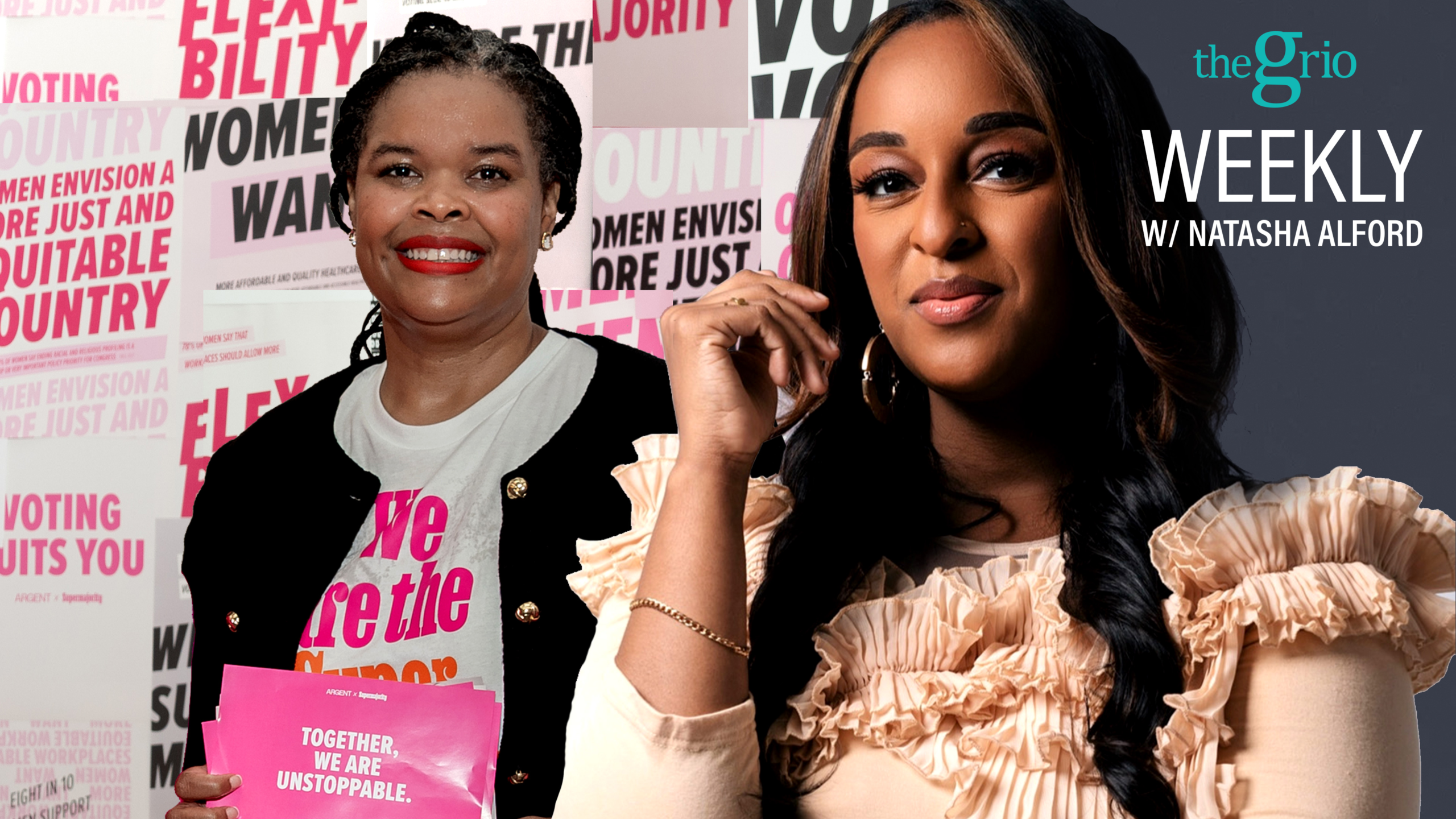Although women make up more than half of America’s population, they are still underrepresented in politics.
There is a new viral clip of Kamala Harris talking to two little Black girls as she campaigned during her first presidential run back in 2019.
Harris, then a United States senator, kneels before the girls and focuses her attention on the younger one, whose eyes and head are shooting down to the ground — likely out of shyness while meeting a famous politician.
“My sister’s name is Maya! Let me see you, Maya …” Harris says while gently tilting the young girl’s chin up so they can meet face to face. “You always hold that chin up, you hear me?” Harris tells her intently.
But it’s the older girl who yells out something that seems wise beyond her years, almost prophetic: “If you don’t make it, I’ll take your place!”
“You will? OK! Well, then, now we have a plan,” Harris responds without missing a beat.
The history books will show that although Harris did not go on to become president on her first try, she landed among the stars in shooting for the highest goal and eventually became the first Black and South Asian woman vice president in the United States of America.
Now, fate has presented Harris with another momentous feat: the opportunity to become the first woman president of the U.S. and simultaneously the first Black woman and first person of South Asian descent to become president. Generations of Black women are watching and wondering, “Could I run too?”
“We need more representation. You cannot legislate for me if you don’t know my lived experience,” said Jara Butler, chief impact officer at Supermajority Education Fund, a women’s equality group that organizes voters in hopes of empowering women politically.
According to Higher Heights Leadership Fund’s “Black Women In American Politics” 2023 report, Black women held less than 6% of congressional seats. Currently, the Senate has no elected Black women (Sen. Laphonza Butler was appointed to fill the seat of the late Sen. Dianne Feinstein), but that could change if Angela Alsobrooks wins her race in Maryland.
Jara Butler points out that watching women run for office can be inspirational, but it can also be scary.
“We see the attacks on Vice President Harris. Black women, especially when we are running for office, we face so many hurdles because we have to prove that we are not only viable,” she explained. “We have to be not twice as good, thrice as good, and sometimes four times as good to show that not only are we qualified, but that we can do the job.”
Harris is proof that even an extensive resume gets overlooked when a candidate is female. She’s endured attacks from her Republican opponent, former President Donald Trump, that she is not a “very bright person,” despite her graduating from college, earning a law degree, and being elected multiple times as district attorney, attorney general, and eventually senator from California, the most populated state in the country.
“That in and of itself can make you afraid, and that gives you a lot of fear,” Butler told theGrio. “I talk to countless Black women who have either run for office or considered running for office or thinking about running up for office,” she continued. “Once they’re in office, they need additional support … they have to deal with their colleagues, who are going to make comments. So they’re … dealing with it from inside and outside.”
Butler added, “We first have to confront our own biases, making sure that we are asking, why are we asking more from this person?”
According to the Pew Research Center, the majority of Americans agree that women have to “do more to prove themselves,” which presents a roadblock to their running for office.
Despite the obstacles, Butler encourages women to seek community and find inspiration from women who have paved the way.
“There are people out there that will support you. I don’t care what these other people do. Sometimes we have to do it alone,” Butler maintained. “I look at Ayanna Pressley. I look at the women who continue to push forward, and one of my political heroes is Barbara Lee,” she said, naming two Black women currently in Congress. “And there are so many people who have said you can’t, you shouldn’t, you won’t. But despite that, they do, and they succeed.”
That success is bolstered even by women who don’t run for office but instead get politically engaged. Take, for instance, Win With Black Women, which raised $1.5 million for Kamala Harris’ presidential run in just a few hours, kicking off a movement of affinity group fundraising that has garnered millions more for the campaign.
With money and will, there is a way. However, changing people’s way of thinking remains key to promoting women’s success in politics.
“We have to remove the barriers,” said Butler. “We still have these private conversations about viability. And I say that quite frankly, viability no longer becomes an issue when you have someone with 34 felonies who is running for president.”
“So I say to every woman and especially to young women, just do it. Just do it. We need you, and it’s important.”
Watch the full conversation with Jara Butler above, and stick with theGrio for the latest in Election 2024 coverage.
Alicia Benjamin
Michael Harriot
David A. Love
Associated Press
Associated Press
Natasha S. Alford
Gerren Keith Gaynor
Panama Jackson
More About:Elections
By TheGrio
By TheGrio
By TheGrio
By TheGrio
By TheGrio
By TheGrio
Weekly New Episodes
Stream Now

